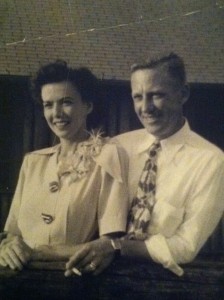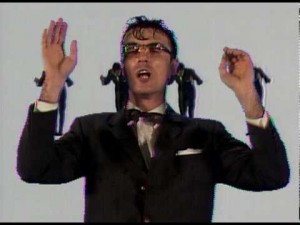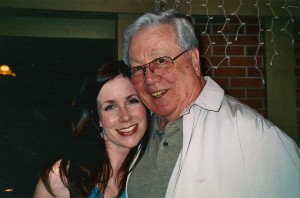In case you missed my guest post on The Three Under blog, my son went away to band camp for the first time last week. It was his first taste of independence, and he couldn’t wait to go.
I, on the other hand, was a nervous wreck. How would he do on his own? What if he got homesick? What if he became ill or was injured? These questions began to plague me as soon as I signed him up for camp in March.
The thought of dropping him off two hours away from home and then spending a week without him made me crazy. To make matters worse, his 13th birthday was the same week. It’s a huge milestone, and I dreaded the idea of him celebrating it away from home and without his family. Obviously, camp was going to be a challenging step for me in the “learning to let go” department, and I knew I needed a distraction.
The rock star (not really, but he is in a band) and I talked about it and decided it was the perfect opportunity to plan the trip to Napa we had always dreamed of. A close family friend even volunteered to take care of our 11-year-old daughter. How could we not go?
Drop-off at camp was just as difficult as I’d imagined. I was anxious and agitated all morning and struggled not to let my son see it. I cried for a solid 15 minutes after leaving him (the rock star says it was more like 30). Later that evening we dropped our daughter off with our friends — a far easier experience, since we knew she would be staying with people we love and trust. And the next morning we left for Napa.
I had a lot of doubts about being so far away from my kids, especially since one of them was two hours from home himself. The plane ride was turbulent and stressful, a perfect metaphor for my state of mind.
Things took a turn for the better when we arrived in San Francisco. The rock star and I were both born and raised in the Midwest, so the breathtaking scenery of the West Coast — the mountains, the valleys, the ocean — leaves us awestruck every time.
Before our Napa adventure began, we planned to stay one night at The Triton Hotel in Union Square, less than a block from Chinatown. If you’ve never stayed at a Kimpton hotel, it’s a unique boutique chain that offers guests a lot of quirky, personal touches. Check out the mini bar at The Triton.
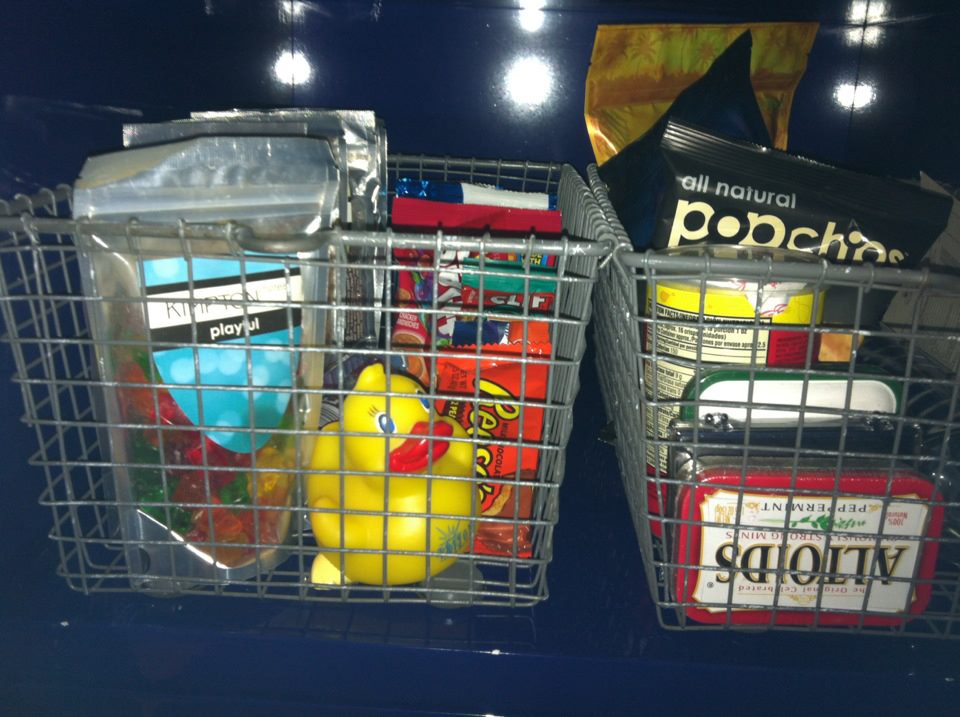
Triton minibar: Rubber duckie, anyone?
We spent a fun evening in our favorite city, meeting an old friend and his girlfriend for sushi and then drinking martinis at the Top of the Mark. The next morning we ran from Chinatown to the bay. The hills in Chinatown were brutal for two Midwestern runners like us. But the view was worth it.
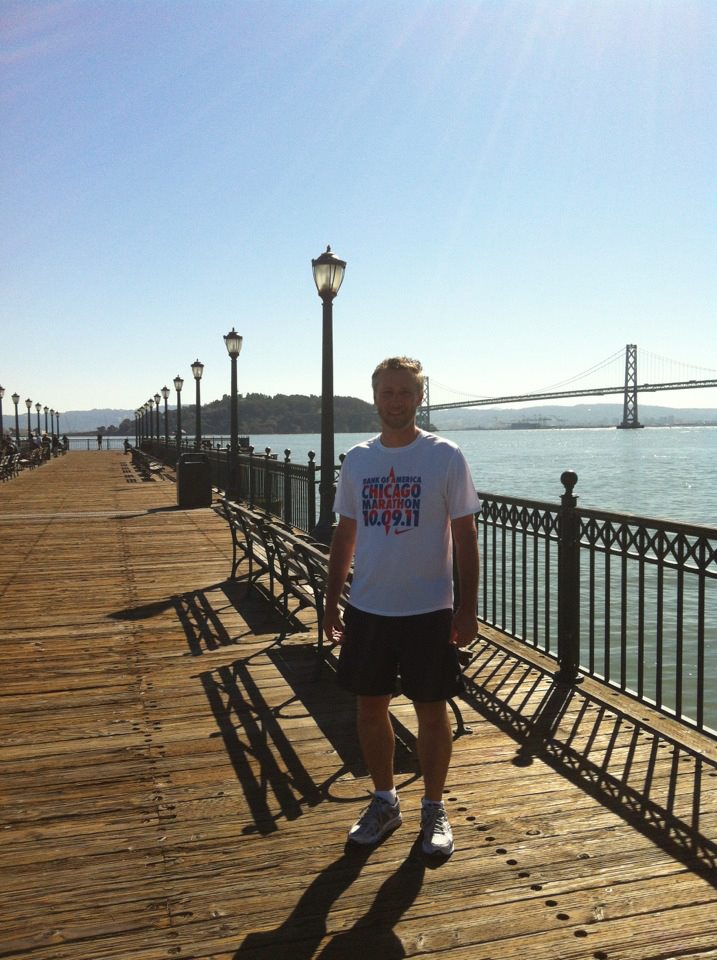
The rock star during our run by the SF Bay
It’s about an hour’s drive from San Francisco to Napa Valley, so after a quick Thai lunch we hit the road. We arrived at our hotel, the River Terrace Inn, in the early afternoon and decided to hit a few nearby wineries before dinner.
Our first stop was Del Dotto Historic Winery & Caves, which we later learned is nicknamed “Del Blotto” because of the extremely large pours. We decided to share a tasting since it was our first winery of the day, and that was a wise idea: Our new friend Luis gave us about 10 different wines to taste. (One we found especially interesting was the rich, smoky 2008 Cabernet Sauvignon.)
Our introduction to Napa did not disappoint. In fact, we struck oenological gold at the majority of wineries we visited in Napa and Sonoma. I have to credit the rock star for this. He did his homework before the trip, and we received a lot of great tips from wine-loving friends at home and knowledgeable folks we encountered in Napa and Sonoma.
Our next stop was Jarvis Winery, where we took a cave tour. (Del Dotto and many other wineries offer these too.) The entire wine-making and business operations of Jarvis are contained within a 45,000-square-foot cave, complete with a stream and waterfall running through the center. For those of you novices like me, a cave is optimal for winemaking because the humidity levels are high and the temperature is constant.

Jarvis Winery cave tour
The wines at Jarvis were exceptional; we particularly liked the Cabernet Franc and the Finch Valley Chardonnay. We also loved the story of Will Jarvis’ Science Project, a wine that started as the eighth-grade science experiment of winery founder William Jarvis’ son.
After Jarvis we headed into town for dinner. A Yelp search led us to Bottega, Food Network Chef Michael Chiarello’s restaurant in Napa. If you go — and you should — order the short ribs. They are smoked and braised, served with whole-grain mustard spaetzle, Sicilian pickles, quince paste and smoky horseradish jus. Unbelievable. I am drooling over the memory alone.
The nights end early in Napa, or at least for us they did. I guess the combination of day drinking and California sunshine was too much for us. Or maybe just enough.
The next morning we took a limo tour of Sonoma with our brassy driver/wine expert, Paula. Our first destination was Domaine Carneros Winery, known for its premium sparkling wines and pinot noir. It was by far the best view I’ve ever enjoyed while sipping bubbly. I am by no means a sparkling wine connoisseur, but these were phenomenal — and also quite affordable.

Enjoying some bubbly, and the view, at Domaine Carneros Winery
Our Sonoma itinerary then led us to Ledson Winery, where we found more wines we loved and what I can only dream will be our next home. While we sipped Cabernet Franc and Sauvignon Blanc, Paula set up a picnic lunch for us near the vineyard. If a salami and bacon panini sounds like an odd combo, all I can say is “don’t knock it till you try it.” It was our favorite lunch of the trip.
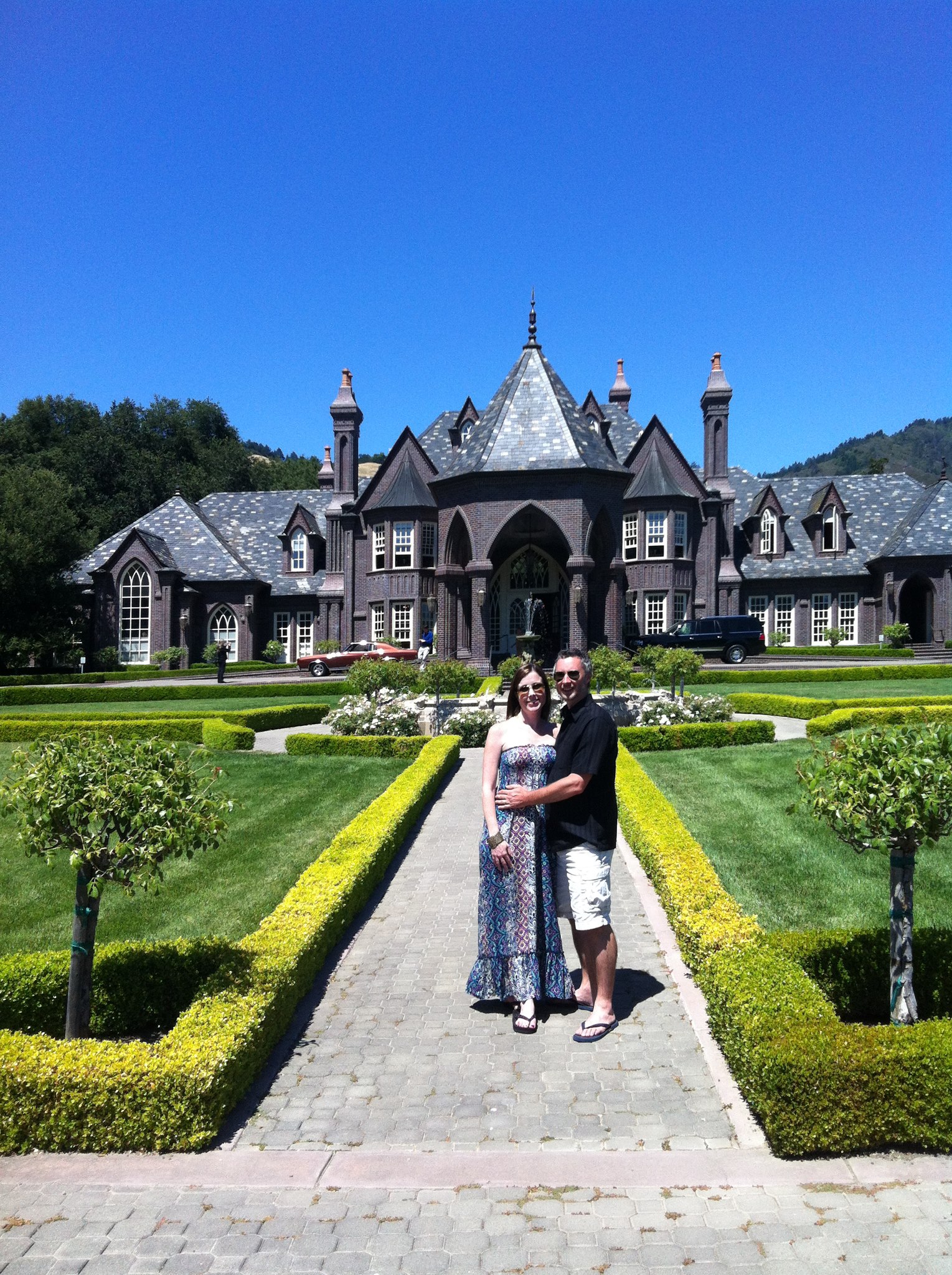
Ledson Winery: our dream house
A stop we particularly enjoyed in Sonoma was Benziger Family Winery, which practices sustainable, organic, biodynamic farming. We took a tractor tour around the vineyard and learned about how the “green guys” do it. The wine we brought home from Benziger was the Signaterra Sauvignon Blanc, crisp and delicious.

Benziger, a biodynamic winery
After a few other brief stops in Sonoma, we headed back to Napa for sushi at Iron Chef Morimoto’s restaurant (my second favorite dinner after Bottega) and then decided to call it a night. Paula had given us a list of “must sees” in Napa for the next day, and we needed to rest up.
Our last day in wine country began with a run along the Napa River followed by brunch at Oxbow Public Market, which sells local and artisanal foods and wines. If you’re looking for a quick bite or a place to pick up a picnic lunch, check out Oxbow.
We had scheduled a tour at Beringer that day, and in retrospect I wish we had skipped it. If you’re planning to do a tour, I’d suggest a cave tour of a smaller, less commercial winery. The impeccably tended gardens and Rhine House are worth a visit, but we didn’t get much out of the tour.
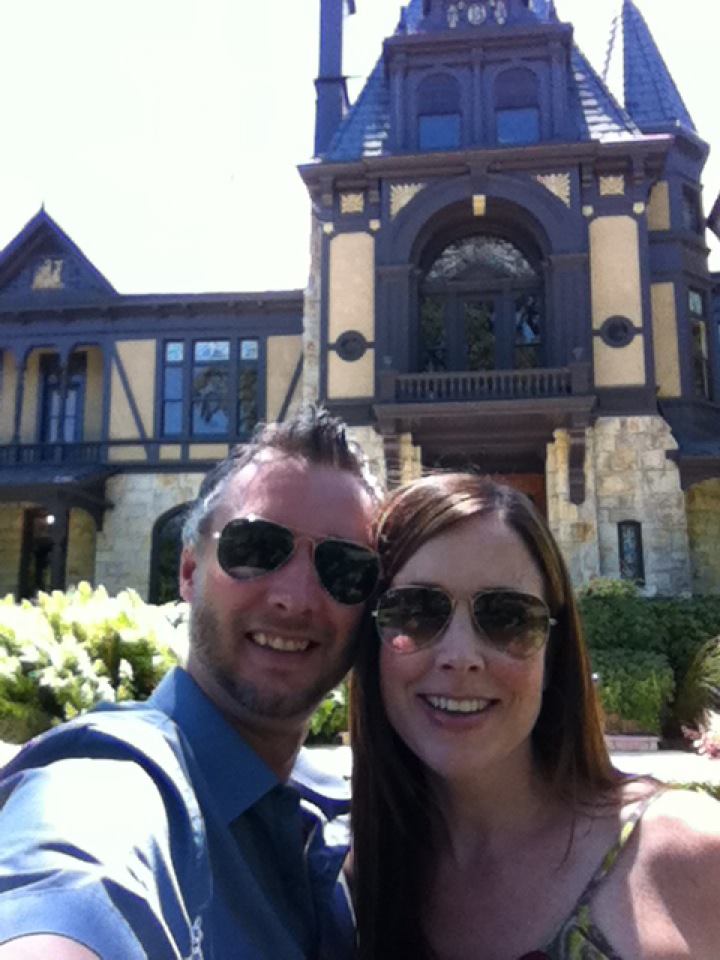
The Rhine House at Beringer
Lunch on our last day was at Farmstead (another of Paula’s picks), the restaurant at Long Meadow Ranch. Executive Chef Stephen Barber offers a menu of farm-to-table dishes, made using the ranch’s grass-fed beef, vegetables, extra virgin olive oil and honey. We loved and brought home LMR’s Sauvignon Blanc.
There were a few other wineries on Paula’s list, but we only had time to hit one more. We decided on Charter Oak Winery, which Paula had emphatically labeled “you will LOVE this stop!!!” Charter Oak is a four-generation family-run winery that operates out of the home of the original winemaker, Guido Ragghianti. Robert Fanucci and his son, David, run Charter Oak using the 100-year-old basket press, homemade punch-down tools and other wine-making equipment he inherited from his grandfather. Guido continued making wine until he died at age 99, and the family still uses his recipe.
The rock star dabbles in winemaking, and so did his father and grandfather, so this was right up his alley. The wines were outstanding, but my favorite part about Charter Oak was our hostess, Robert’s wife, Layla. The former music teacher turned artist is an absolute delight. We truly felt like guests in her home rather than strangers on a wine tour. After you tour Guido’s cellar and sample the wines, be sure to check out Layla’s artwork. She is as talented as she is gracious.

Layla's artwork appears on some of the Charter Oak wine bottles
Our homecoming was a bit of a whirlwind. We left for Chicago the following day, picked up our daughter that evening and headed downstate to pick up our son the next morning. The look on his face when he saw us was happy and relieved, but I could tell he’d had the time of his life. His buddies had even thrown him a surprise birthday party. Mama bear was happy and relieved too — to say the least.
In the days that followed I noticed some changes. He seemed more confident, more independent. He had grown during his week away.
The changes in him made me think of something one of our Napa wine tasting hosts had said: “Violated expectations are the key to learning.” The host, of course, was speaking in terms of expectations about taste. But his statement also applied to my negative expectations about my son going away to camp and being separated from him.
That week turned out to be a learning, and growing, experience for both of us.











